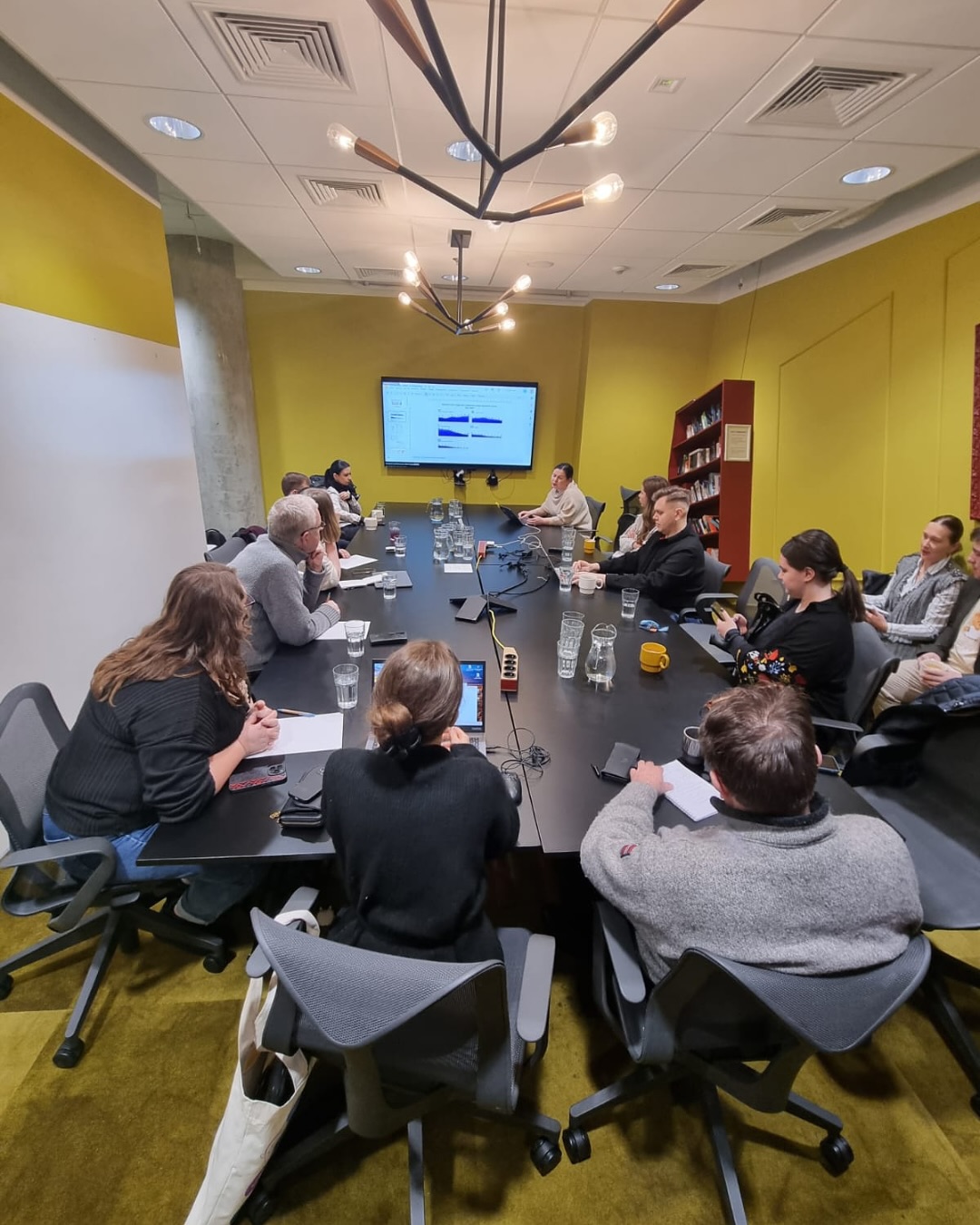Russian propaganda aims to smear Ukrainian refugees in Poland and Norway, calling them “a threat to the economy,” “ungrateful,” or “criminals,” said Iryna Zemlyana, a media expert at the Institute of Mass Information (IMI), at the international conference “False Narratives — Real Impact: Russian propaganda’s influence on Ukrainian refugees in Poland and Norway” in Warsaw on February 28.
She said that Russia adapts its narratives for different countries. For instance, in Poland, their propaganda focuses on economic aspects and uses messages like “refugees are taking away jobs.” It also exploits cultural differences, trying to provoke unrest among the local population. In Norway, Kremlin propaganda focuses on the social costs and alleged “conflicts” between refugees and locals.
What narratives about Ukrainians Russia peddles in Poland and Norway
Russian propaganda actively employs several manipulative narratives aimed at smearing Ukrainian refugees. The following are the most common ones.
- Ukrainian refugees are a threat to the economy
Claims that Ukrainian refugees are taking away jobs, depleting social funds, and increasing the load on state resources.
- Criminals and extremists
Russia consistently spreads claims about the high percentage of criminals among Ukrainians, even though there is no real statistical evidence to confirm this.
- Ungrateful guests
The Kremlin’s propaganda machine pushes the narrative that Ukrainian refugees behave insolently and have no respect for local traditions and laws.
- Ukrainians are going back because they are happy in Russia
Propaganda uses manipulative stories about refugees going back to paint Ukraine as a “failed state.”

Iryna Zemlyana with conference participants in Warsaw, February 28. Photo provided by Stand With Ukraine Foundation
How EU politicians exploit these narratives in their own interest
Iryna Zemlyana warns of the greatest danger: politicians in various countries are beginning to exploit the Russian narratives listed above to serve their own interests. For example, in Poland, some parties openly exploit anti-refugee rhetoric in their campaigns, which only increases social tensions.
Russian propaganda in the US: why it is a global threat
Even more dangerous is the integration of Russian propaganda into American disinformation campaigns, notes the IMI media expert. According to her, influential conservative media outlets and personalities in the United States are increasingly spreading narratives that directly or indirectly reinforce the Kremlin rhetoric. This creates a global threat, as disinformation spreads faster and becomes harder to refute.
How to fight the Kremlin’s narratives abroad
To efficiently fight the spread of Russian disinformation, action should be taken on several levels. The IMI media expert identified three key areas that will help reduce the influence of the Kremlin’s narratives and boost a society’s media resilience.
- Exposing and analyzing Russia’s disinformation campaigns.
- Bolstering the information resilience among Ukrainian refugees.
- Pushing back against the use of propaganda messages in political discourse.
Iryna Zemlyana also gave a masterclass on disinformation for participants of the conference, including representatives of the Norwegian delegation and Euromaidan volunteers. The IMI media expert and they discussed the mechanisms of creating disinformation in the media and compared the ways in which it is being peddled in different countries, in particular in Ukraine and Norway. She also went over the skills of information verification, recognizing manipulation techniques, and developing counter-narratives to efficiently refute fake news.

Iryna Zemlyana gives a disinformation masterclass to conference participants in Warsaw, February 28. Photo provided by Stand With Ukraine Foundation
* The event was organized by the Stand With Ukraine Foundation in cooperation with the Juliusz Mieroszewski Center for Dialogue and the Association of Ukrainians in Norway. The conference was opened by the Ambassador of Norway, Øystein Bø, the Ambassador of Ukraine, Vasyl Bodnar, and others.

